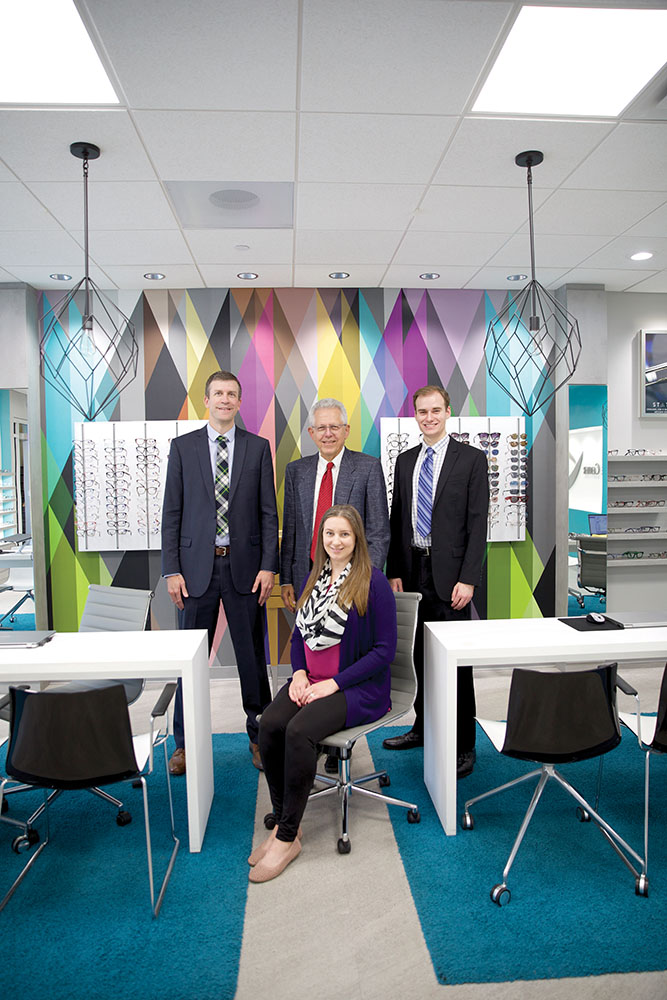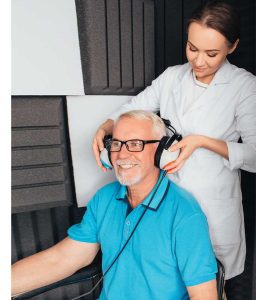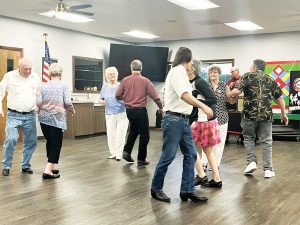By Alexander Germanis
The human eyes are nothing short of miraculous. With them we are able to perceive the vast palette of colors throughout the world. We can lose our cares and alleviate stress as we indulge in a favorite movie or book. We can deduce another’s emotional state, analyze the functionality of any number of machines, and even gauge distance and speed.
With a seemingly never-ending list of possibilities, it should come as no surprise that there is an equally never-ending number of dangers of which our eyes are at risk. From specks of debris flying through the air to the day-to-day strain we choose to subject them to, our eyes are in need of constant and proper care.
The doctors of Vision Care Center (VCC) in Peoria and Washington have all dedicated their careers to helping their patients preserve their vision and strengthen any weaknesses they may have so they can again experience healthy vision.
So Many Ways to Help
“Close your eyes. Now tell me what life would be like without vision,” challenges Dr. Jennifer Wilson, optometrist at VCC. Intrigued by how the brain and vision work together is what lured Dr. Wilson to her career in the first place. But she was equally taken with how that system could fail and what she could do to fix it.
At VCC, the methods they can employ to help their patients’ vision are myriad. From prescribing lenses to enhance everyday activities to lenses that can decrease glare for safer driving at night, the goal is to enhance and preserve all aspects of your sight. There are also lenses—both in frames and contact lenses—with built-in tinting that darken automatically when going outside, thus preventing squinting and the subsequent wrinkling.
“We can prescribe lenses that alleviate eye strain, pain, and headaches when viewing your smartphone or computer,” Dr. Wilson continues. “We have blue-blocking technology we can add to eyeglasses to decrease the amount of damaging blue wavelengths reaching your macula (the part of the eye you use when reading our letter charts or this article), thus hopefully decreasing your risk of macular degeneration or helping to give you a more restful night of sleep.”
“Besides glasses and contact lenses, we provide care and treatments for patients with dry eyes, allergies resulting in itchy and watery eyes, and infections or ‘pink’ eyes,” she adds. “We can remove foreign bodies, such as specks of metal that get stuck on the front surface of the eyes. We also see patients with diabetes, which if left uncontrolled, can be very detrimental to vision. We also manage and treat glaucoma, a disease that decreases peripheral vision. We also provide nutritional recommendations for macular degeneration (loss of central vision), cataracts, and overall eye health.”
Utilizing advanced technology and equipment, the doctors at VCC are also striving to make your trip to get your eyes checked a little more pleasant. With their retinal camera, they can take a digital photo of the retina, providing an often-better view of the retina than through pupil dilation.
More Than 20/20
There is far more to eye health than what Dr. Wilson mentioned, however. Even having normal 20/20 vision is not the pinnacle of sight. People with good vision can still suffer from other maladies of the eyes.
Convergence, the inward movement of the eyes that allows for focusing on near objects; accommodation, controlling focusing distance; and visual spatial function including depth perception are other aspects of vision that can be less than ideal.
For instance, in order for the eyes to function during reading, they need to “team together well,” as optometrist Dr. Roger Fitch says. “If they don’t, in 20 minutes, you’re skipping words. After four hours of desk work, your eyes aren’t comfortable, you have headaches, you’re starting to feel like your eyes are crossing. While 20/20 is the sight, the eye muscles need to team together to give you flexible use of your sight.”
This flexible use is what constitutes convergence. There are more and more problems, particularly among the young, with convergence. Dr. Fitch attributes this to the predominant use of cellphones and tablets, which are often held several inches closer to the eyes than a book.
“Your eyes are converging to hold that focus,” he points out. “That’s lots of eyestrain, lots of physical fatigue that has nothing to do with eyesight and everything to do with flexibility, comfort, and the ability to focus, refocus, and maintain concentration.”
A lack of proper focus leads to wasted effort, the doctor continues. Putting in more mental work to focus on words or objects means less effort is being put toward actually processing the words being read. Again, this is a common occurrence among schoolchildren, who can spend hours on a homework assignment that should take only a fraction as long.
Something else that can be frustrating is not being able to watch a 3D movie. If watching or trying to capture a 3D image in a book causes headaches, Dr. Fitch says that could be a sign of faulty convergence or accommodation of the eyes.
Depth perception is also an issue that plagues many people, and they may not even realize it. This can be potentially dangerous, particularly while driving.
Furthermore, traumatic head injury or concussions can also disturb the accommodative and convergence systems of our eyes.
Fortunately, there is hope for all of these conditions.
Vision Therapy
For brain injury patients, those with dizziness, or with severe headaches, Dr. Fitch uses specialty prism glasses to help retrain a patient’s eyes and restore them to proper functionality. Patients even drive in from all the surrounding states to seek a restoration at VCC. One patient Dr. Fitch mentions has had headaches since she was 10 years old. “She’s in her 30s now,” he says. “Prism eyewear solves some of her long-standing eye strain and her long-standing headaches. So that’s kind of cool. I love that!”
But for people needing other forms of vision therapy, such as for convergence or accommodation, Dr. Fitch refers them to Dr. Cundiff to properly develop the visual skills of these patients.
“An extremely rewarding aspect of patient care is having the opportunity to help change the lives of individuals struggling with binocular vision disorders,” says optometrist Dr. Timothy Cundiff. “Whenever the two eyes are not working together as a team, they can cause significant amounts of frustration when doing simple tasks like reading or writing.”
“Our vision therapy program has great success working with these patients,” he continues. “Whether it’s amblyopia (lazy eye), strabismus (crossed eyes), or oculomotor control dysfunction (eye tracking problems), it is a thrill to watch their progress as they build and develop confidence in their visual skills. We work with patients of all ages in the program; however, the majority are school-age children with reading and academic difficulties. Our program has been proven to be effective for over 85 percent of patients. It can really make a profound impact in the lives of these patients.”
Beyond Eyecare
The staff at Vision Care Center believe in caring for their patients’ eyes, but their enthusiasm for their work extends well past the nine-to-five restrictions of the workplace. Their dedication to good sight is a round-the-clock passion. “I am able to spend quality time with each patient, I will stay late if needed, do some extra research, and follow up with patients,” Dr. Wilson shares.
“We also want people to know we’re available on short notice,” adds Dr. Fitch. “That’s a big deal.”
The happy optometrists and support staff feel this way because eye care is more than just a job for them, it is a mission.
“I followed the path that the Lord set out for me, and I am very grateful that He has blessed me with a wonderful profession, earning a living helping people see!” Dr. Wilson declares. “Crisp and clear vision that is comfortable and preventative is our specialty. When you have great vision, you can focus on other wonderful things!”
Indeed, as miraculous as our sight is, it is not the end-all, be-all of existence. But it is the window to so much more that life has to offer. With the help of those at Vision Care Center, sight can be preserved, vision can be enhanced, and health can be restored to enjoy the beauty of nature, the wonders constructed by man, and, perhaps above all, to gaze on the faces of those we love.
Vision Care Center has two locations: 4727 North Sheridan Road in Peoria, phone: (309) 670-2020; and 1009 North Cummins Lane in Washington, phone: (309) 444-8811. To learn more about us, how we can help with your vision care, or to make an appointment, please call us today. Or visit us on the web at www.vcc2020.com.










